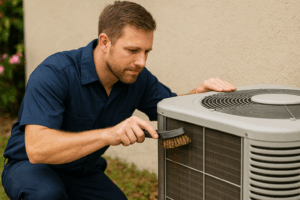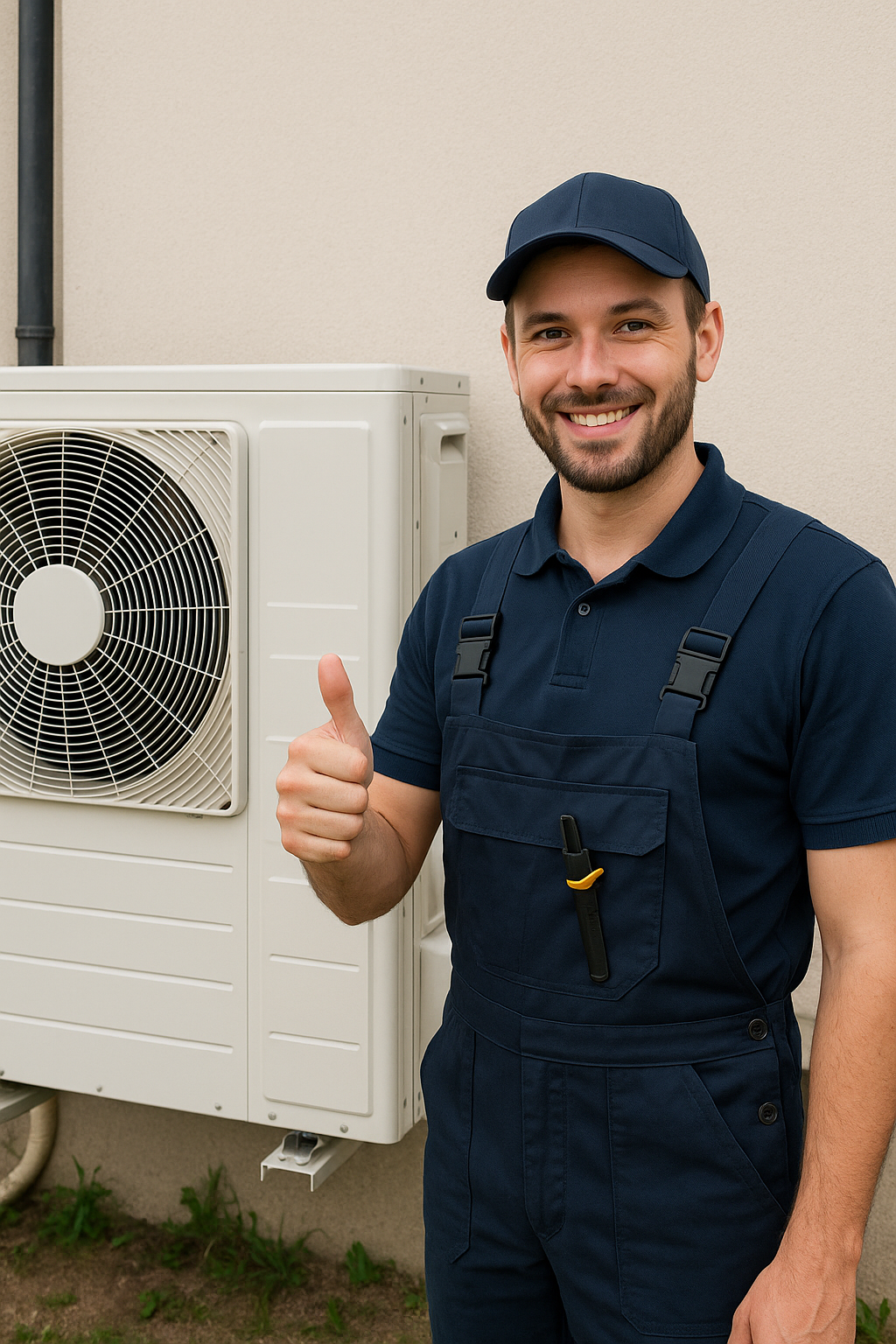
In Florida’s unforgiving heat, your air conditioner is more than just a modern convenience—it’s your home’s first line of defense against relentless humidity and rising temperatures. But when your system starts acting up, the big question becomes: repair or replace?
At Smart Home Air & Heat, we understand that not every hiccup means it’s time for a full system upgrade. In fact, in many cases, a well-timed repair can restore comfort, save money, and extend the life of your equipment. Here’s how to know when repairing your AC is the smartest move.
1. When a Repair Makes Sense

In many cases, a repair is the most cost-effective and practical choice—especially if your system still has some good years left in it. Here’s when you might want to repair your AC unit:
- It’s Less Than 10 Years Old If your system is under a decade old and hasn’t had any major issues, a repair will likely do the trick—especially if it’s still under warranty.
- Strange Smells Odd odors can often be resolved with a thorough cleaning or minor repair. Your technician can pinpoint the cause and address it quickly.
- Unusual Noises Banging, clanking, or squealing noises may sound serious, but they’re often caused by loose or worn-out parts. These can usually be fixed without major expense.
- Weak Airflow Poor airflow could result from something as simple as a clogged filter or a blocked duct. A repair technician can diagnose the issue and restore your system’s performance.
- Short Cycling If your unit keeps turning on and off frequently, it might just need a tune-up or a thermostat recalibration—not a full replacement.
2. When It’s Time to Replace Your AC

Sometimes, hanging on to an older unit ends up costing more in the long run. Consider replacing your system if you’re dealing with:
- An Aging System (15+ Years Old) If your AC is more than 15 years old, it’s likely on borrowed time. Upgrading to a newer, more efficient system can save you money on repairs and energy bills.
- .Constant Breakdowns If you’re calling for service multiple times a year, those repair costs can add up fast. At a certain point, replacing the system is the more economical—and less frustrating—option.
- High Energy Bills A sudden spike in your utility bill could be a sign your system is working too hard to keep up. An older unit with worn parts simply can’t run as efficiently as a new one.
- Safety Issues While rare in AC systems, safety concerns like a cracked heat exchanger or refrigerant leaks should never be ignored. If your system is putting your health at risk, replacement is the only safe option.
- Ongoing Short Cycling Frequent cycles might start as a simple repair issue—but if it persists, it could be a sign your system is the wrong size for your home or on its last legs.
